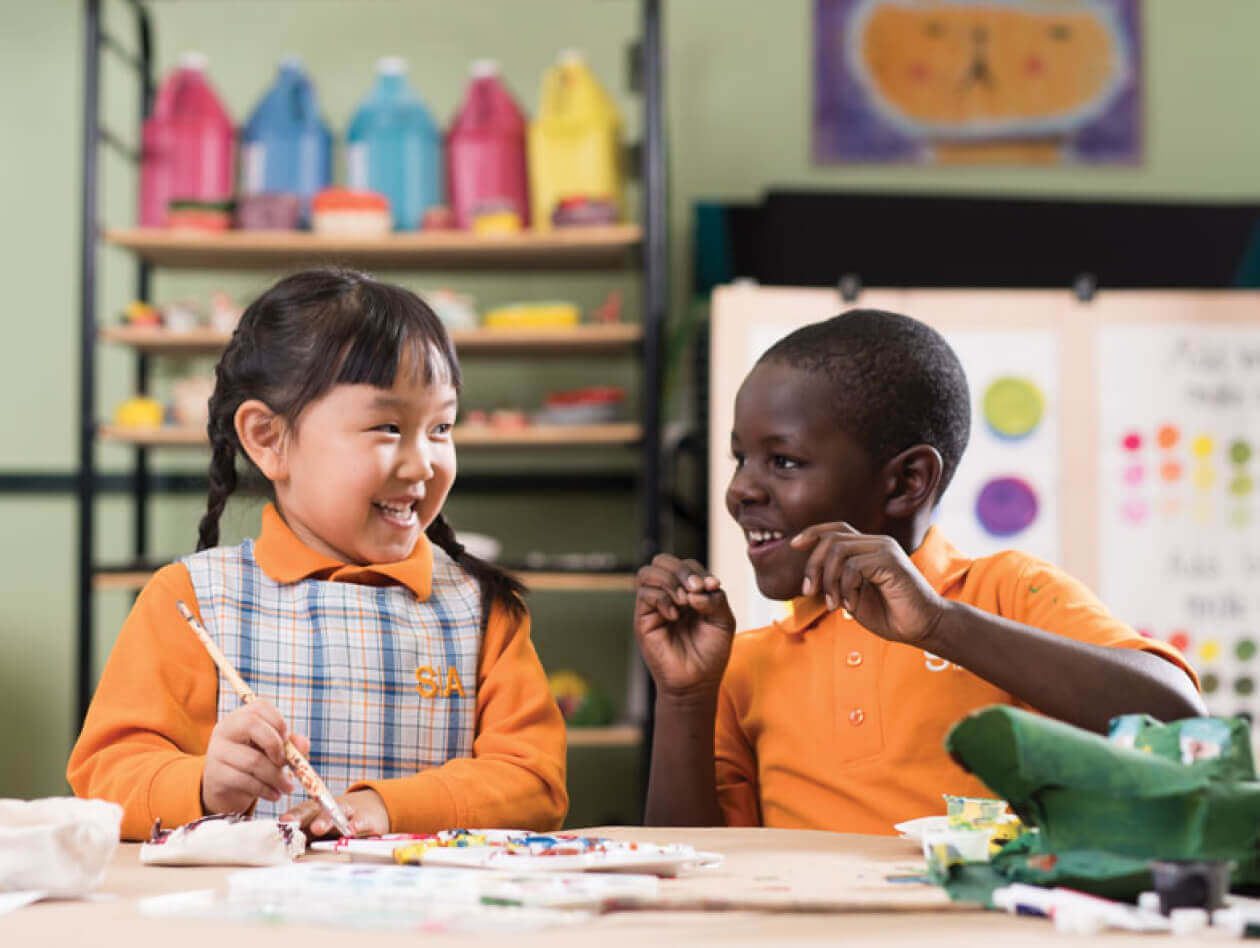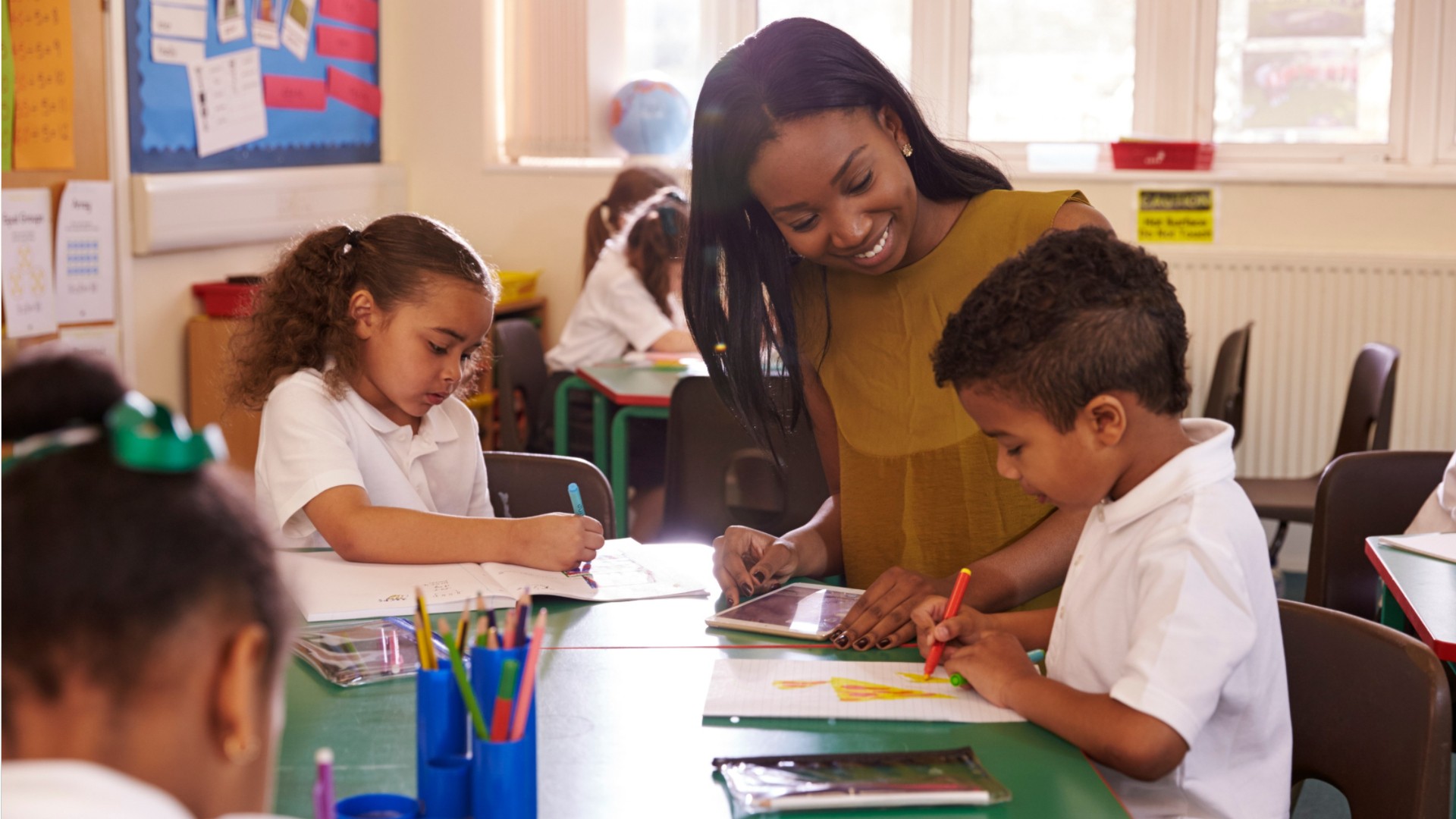Everything about Kindergarten: Understanding the Importance of Very Early Childhood Years Education And Learning Programs
Kindergarten acts as a vital stage in a kid's early development. It introduces foundational abilities crucial for future discovering and social interactions. Through numerous tasks, youngsters participate in structured play that promotes cognitive growth. Comprehending the subtleties of various kindergarten programs can additionally illuminate their significance. What details benefits do these very early education experiences supply, and just how do they shape a youngster's trajectory? The solutions might be much more complicated than one may expect.

The Role of Kindergarten in Kid Advancement
Some may see kindergarten just as a changeover phase before formal schooling, it plays a crucial role in kid development. This foundational stage cultivates critical social, emotional, and cognitive skills that are critical for lifelong discovering. In preschool, kids participate in structured play, which enhances their ability to cooperate, share, and fix problems with peers. These interactions prepared for healthy and balanced partnerships and enhanced communication abilities.
In enhancement, preschool presents children to fundamental ideas in proficiency and numeracy, triggering interest and a love for learning. Educators lead trainees through activities that advertise critical and problem-solving reasoning, necessary parts of intellectual growth. The setting highlights regular and framework, assisting children establish self-discipline and independence. By concentrating on all natural advancement, kindergarten assurances that youngsters are not only prepared academically yet additionally socially and psychologically for the difficulties of future educational undertakings.
Key Advantages of Early Childhood Education
Early childhood education uses numerous advantages that can significantly affect a youngster's development and future success. Study shows that children that take part in high quality early education programs exhibit improved cognitive abilities, much better language advancement, and boosted social skills contrasted to their peers that do not go to such programs. These foundational abilities are essential as they establish the stage for academic accomplishment and long-lasting learning.
Furthermore, early education fosters psychological growth by giving children with opportunities for cooperative play and conflict resolution, aiding them establish strength and empathy. Grade School. Additionally, these programs typically help connect the gap for kids from varied histories, making sure equitable access to discovering experiences and sources
Ultimately, investing in very early childhood education and learning not only benefits specific children however additionally adds to stronger neighborhoods, as informed people are most likely to engage positively in culture and the labor force.
Various Sorts Of Preschool Programs
Various preschool programs deal with different academic philosophies and requirements. Full-day choices provide extended understanding time, while the Montessori strategy emphasizes freedom and hands-on experiences. Furthermore, play-based discovering methods foster creativity and social abilities, showing the variety in very early youth education.
Full-Day Preschool Options
Numerous parents and teachers identify the growing importance of full-day kindergarten choices in early childhood education and learning. Full-day programs usually supply a more detailed understanding experience, permitting children to take part in a variety of tasks throughout the day. These options often consist of a balanced educational program that integrates academic, social, and emotional growth. Some districts supply standard full-day preschool, while others might give specific programs, such as dual language or thematic learning settings. In addition, full-day kindergarten can suit functioning moms and dads by lining up institution hours with regular job schedules. Study suggests that students in full-day programs often show boosted academic efficiency and social skills compared to their peers in half-day settings, making these options progressively popular in many communities.
Montessori Strategy Overview
The Montessori technique is just one of lots of educational philosophies, it has actually gotten significant attention for its distinct focus on child-led understanding and expedition. Developed by Dr. Maria Montessori, this approach focuses on fostering independence and self-directed activity in kids. Classrooms are generally created to encourage movement and hands-on interaction with products, allowing youngsters to learn at their own speed. Montessori instructors work as overviews, facilitating learning via observation instead of direct direction. This technique prioritizes mixed-age classrooms, promoting partnership and peer learning. Furthermore, the Montessori approach stresses functional life abilities and sensory tasks, helping children establish a strong structure in both scholastic and social expertises. Parents usually appreciate the alternative growth that this approach nurtures in their kids.
Play-Based Knowing Strategies
Play-based learning approaches are important to various kindergarten programs, emphasizing the importance of play as a basic mode of learning for young kids. These strategies encourage expedition, creative thinking, and social communication, allowing children to take part in hands-on experiences that promote psychological and cognitive development. Numerous types of play, such as creative, positive, and physical play, are made use of to sustain discovering purposes across topics like literacy, science, and mathematics. Furthermore, play-based programs frequently integrate joint activities, promoting teamwork and interaction abilities. Educators observe and lead youngsters throughout play, ensuring that finding out end results are achieved while keeping a joyous knowing environment. This technique not only improves academic preparedness yet additionally cultivates a lifelong love for understanding, making it an essential element of very early youth education and learning.
The Significance of Play in Knowing
A substantial body of research emphasizes the critical role of play in very early youth education and learning, highlighting Source its extensive effect on check my source understanding and growth. Play acts as an essential device whereby little ones discover their environment, create cognitive abilities, and improve their analytical capacities. Taking part in imaginative play allows kids to try out various duties and scenarios, cultivating creative thinking and crucial reasoning.
Play-based knowing encourages kids to involve with materials and concepts in a hands-on fashion, making abstract concepts more tangible and reasonable. This experiential learning method not only captures children's rate of interest but additionally advertises innate motivation, basic for lifelong knowing.
With play, youngsters likewise fine-tune their motor abilities and spatial understanding, preparing for a lot more intricate scholastic jobs. Essentially, focusing on play in very early youth education programs is important for nurturing holistic advancement, outfitting kids with the fundamental skills required for their future academic trips.
Social Abilities Advancement in Preschool
Structure on the foundation established via play, preschool works as a vital atmosphere for social abilities development. Throughout this developmental phase, children participate in structured activities that urge communication with peers. Via group jobs, cooperative video games, and shared tasks, they discover important abilities such as communication, problem, and compassion resolution.
Educators facilitate these interactions, guiding children in recognizing social hints and cultivating positive connections. As kids navigate different social situations, they develop a feeling of belonging and discover to value diverse perspectives.
Moreover, preschool supplies opportunities for kids to practice turn-taking, sharing, and negotiation, which are important for building friendships. These experiences not just enhance social skills yet also add to emotional knowledge. Therefore, the social skills gotten in preschool lay the groundwork for effective interactions in later educational settings and throughout life. For that reason, the relevance of social abilities development in preschool can not be overstated.
Parental Participation in Very Early Education And Learning

In addition, when moms and dads show a rate of interest in their youngster's education and learning, it grows a positive mindset towards knowing. When they feel sustained, kids are more most likely to develop a feeling of belonging and inspiration to succeed. Additionally, parental involvement can boost a kid's psychological wellness, leading to better strength in dealing with college challenges. Promoting a joint atmosphere between home and school is vital for enhancing early academic experiences and results.
Getting ready for the Shift to Grade School
As youngsters come close to completion of their preschool journey, planning for the change to elementary college becomes increasingly crucial. This shift requires cautious preparation and support from both moms and dads and educators. Familiarizing kids with the new setting, routines, and assumptions of grade school can relieve their anxiety and advertise confidence.
Schools often give Continued orientation sessions that present children to their future class and instructors, promoting a feeling of belonging. Furthermore, parents can involve in conversations concerning the changes ahead, stressing the exciting opportunities for learning and social interaction.
Encouraging self-reliance in daily tasks, such as dressing and following a timetable, can also be useful. Exercising vital skills, such as letter recognition and fundamental math, prepares children academically for initial quality.
Eventually, a joint initiative amongst parents, instructors, and the area ensures a smoother change, laying a solid structure for a successful educational journey.
Regularly Asked Concerns
What Certifications Should Kindergarten Teachers Have?
Preschool educators must possess a bachelor's degree in very early childhood education or a relevant area, along with state accreditation. Extra credentials may consist of specialized training in kid advancement, class monitoring, and effective training techniques.
Exactly how Do I Choose the Right Kindergarten Program?
To choose the right preschool program, one must think about variables like curriculum, training techniques, class size, instructor credentials, and parent testimonials. Going to facilities and observing interactions can also provide important insights right into the program's atmosphere.
What Should My Youngster Learn in Kindergarten?
In preschool, a youngster should discover foundational abilities such as standard reading and writing, counting, social interactions, analytical, and motor skills. These competencies foster cognitive growth and prepare them for future educational obstacles.
Exist Age Needs for Preschool Registration?
Many states need youngsters to be five years old by a specific date, frequently September 1st, for kindergarten registration. Nevertheless, details age requirements can differ, so checking neighborhood school area guidelines is essential.

Exactly How Can I Support My Child's Knowing in your home?
To support a youngster's knowing at home, moms and dads can establish a regular, provide engaging instructional materials, encourage reading, join hands-on tasks, and foster open interaction to support inquisitiveness and essential reasoning skills.
Kindergarten serves as a vital stage in a youngster's very early growth. Some may check out kindergarten just as a changeover stage prior to formal schooling, it plays a crucial role in kid growth. In enhancement, kindergarten presents kids to basic concepts in proficiency and numeracy, stimulating inquisitiveness and a love for understanding. Play-based knowing strategies are essential to various kindergarten programs, stressing the importance of play as an essential mode of learning for young youngsters. In kindergarten, a child should discover fundamental abilities such as standard analysis and writing, counting, social communications, problem-solving, and motor skills.